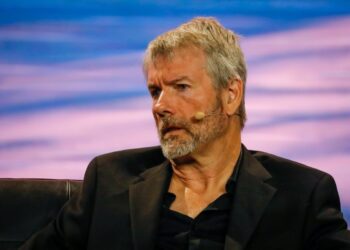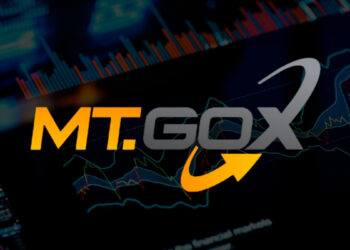Quick Breakdown
- Robinhood CEO Vlad Tenev calls tokenisation a “freight train” set to disrupt the $115T stock market
- Over 200 tokenized stocks launched on Arbitrum for European users, including Tesla and OpenAI
- U.S. adoption lags amid regulatory uncertainty, while Europe leads with MiCA framework
Tokenizing the world’s financial assets is inevitable, according to Robinhood CEO Vlad Tenev, who described the shift as a “freight train” poised to disrupt the $115 trillion global stock market. Speaking at Token2049 in Singapore, Tenev stressed that blockchain rails will ultimately carry equities, bonds, and other assets, reshaping traditional finance.
“Tokenization will eat the entire financial system,”
Tenev told attendees, noting that the long-promised transition of real-world assets (RWA) onchain is closer than ever.
Robinhood CEO Vlad Tenev said at Token2049 in SG that tokenization will consume the entire financial system, putting all assets on-chain and merging traditional finance with crypto. He noted U.S. regulation lags Europe, but the trend is unstoppable. The tokenization market is…
— Wu Blockchain (@WuBlockchain) October 2, 2025
Robinhood expands tokenized stock offering
Robinhood has already listed more than 200 tokenized stocks on Ethereum Layer 2 network Arbitrum for European users, including Tesla and OpenAI. The move positions tokenized equities as a new driver of crypto adoption, bringing traditional markets into the DeFi ecosystem.
Tenev suggested that tokenized stocks could reach mainstream status within the next five years in most jurisdictions. Full-scale adoption, however, may take a decade or longer, with the U.S. lagging due to regulatory uncertainty. He pointed to Europe’s MiCA framework as giving the region an early advantage in crypto integration.
Wall Street joins the tokenization race
Despite tokenization representing just 0.02% of the $115 trillion equities market valued at $32 billion momentum is accelerating. BlackRock, Franklin Templeton, and Apollo are already moving to tokenize fund products, while exchanges like Coinbase, Crypto.com, and Kraken are preparing tokenized stock trading.
In the U.S., progress depends on pending legislation. The House passed the Clarity Act in July, while the Senate continues to debate its version. Once unified, the framework will dictate how tokenized assets are regulated.
For Robinhood CEO Vlad Tenev, the trajectory is clear: real-world assets (RWAs) on blockchain will fuel the next wave of crypto adoption, transforming finance from Wall Street institutions to everyday retail investors.
That conviction is already delivering results. In Q2 2025, Robinhood’s cryptocurrency revenue surged 98% year-over-year to $160 million, as the company doubled down on asset tokenization and accelerated its global expansion strategy.
If you want to read more market analyses like this one, visit DeFi Planet and follow us on Twitter, LinkedIn, Facebook, Instagram, and CoinMarketCap Community.




















